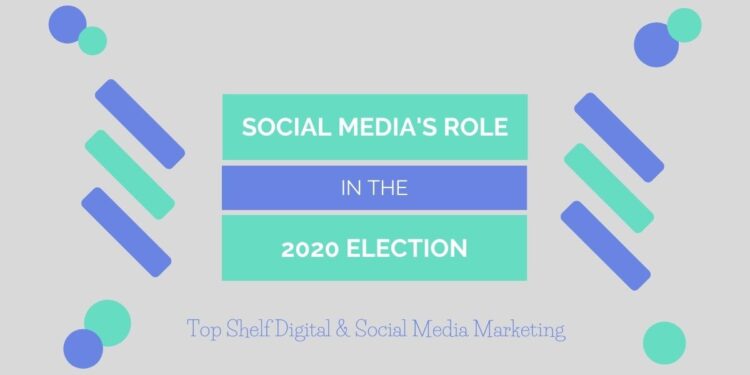
With all the talk about social media and the 2020 US Election, it’s hard to believe that only recently politicians embraced platforms such as Facebook and Twitter. In this election, both campaigns are disseminating key information (and misinformation) via social media during this 2020 US election.
2020 US Election Candidates’ Social Presence
Currently, the two US presidential candidates have 11.6 million (Biden) and 87.3M (Trump) Twitter followers on their personal accounts. President Trump also has a POTUS account which boasts 32 million Twitter followers.
Interestingly, Forbes reported that, “data found that Biden’s three highest performing tweets have nearly double the amount of interactions compared to Trump’s respective tweets, despite Biden’s drastically lower follower count.”
Hootsuite is also monitoring election-related social media activity. They found that between, “Oct. 21 to Oct. 23 there were 6.6 million total mentions of Trump and Biden, with Biden owning 72% of those mentions.” (Also reported by Forbes.)
What’s the Worst-Case 2020 US Election Social Media Scenario
BBC sheds light on serious concerns about how misinformation on election night could be the spark that ignites an already volatile situation in the US.
In short, while elections are typically decided within hours of the polls closing, accounting for mail-in ballots could delay an official announcement by days. During that time, there is growing concern that candidates could take to social media to prematurely declare victory on behalf of their party. (Read the entire BBC article here.)
How Are Tech Companies Responding?

On October 30, 2019, Twitter CEO Jack Dorsey announced that the company would “stop all political advertising on Twitter globally.” This was met with some criticism from people who pointed out that Twitter’s stakeholders stood to lose approximately $3 billion in political advertising revenue.
During August 2020, Twitter again came under fire for flexing it’s social media policies and removing content from Donald Trump Jr.’s Twitter account. At the time, Liz Kelley, a spokeswoman for Twitter, told The Washington Post: “Tweets with the video are in violation of our covid-19 misinformation policy.”
Most recently, Twitter banned and then unbanned links related to the story about Hunter Biden’s leaked emails. According to a study by MIT, this actually drew MORE attention to the article instead of less.
In the final week of the 2020 US Election, it seems Twitter is ready to react quickly and decisively, even if that means walking back their stance on certain topics/articles as more information becomes available.

Facebook has come under intense scrutiny about how little it restricts ads. That said, it is a part of a coalition of media companies who are war-gaming how to handle the election and potential uncertainty while mail-in ballots are counted.
Additionally, Mark Zuckerberg has committed to rejecting ads from US political campaigns that prematurely declare victory.
Will this be enough? It’s hard to say. Zuckerberg continues to lead Facebook down a very fine line between curbing potential misinformation and benefitting from shady ad revenue.

According to Axios, Google will also ban election-related ads after the election. This applies to apply to content running through all of Google’s ad-serving platforms, including Google Ads, DV360, YouTube, and AdX Authorized Buyer.
In Conclusion
There’s no perfect solution for policing the 2020 US Election on social media. While we fully support the right to free speech, there are some serious concerns about social media being used as a tool to disseminate misinformation. It may be that Twitter’s approach is best, in that it allows the company to research certain topics prior to them going viral. As we know from Pandora’s box, it’s difficult to close the floodgates once they’ve been opened.
To see if your needs align with our skills tell us a little about your brand.
